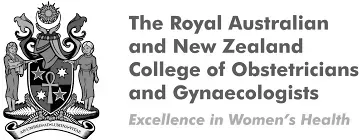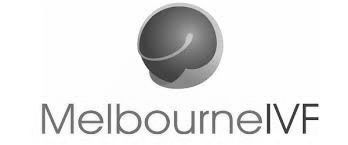Egg-Freezing
What is Egg-Freezing?
Egg freezing, also known as oocyte cryopreservation, is a medical procedure that allows women to preserve their fertility by freezing and storing eggs for future use. This process can be especially beneficial for women who are not yet ready to conceive but wish to retain the possibility of having biological children later in life.
Who is Suitable for Egg-Freezing?
Egg freezing can be an option for several types of individuals, including:
- Those undergoing treatment for cancer or other illnesses
- Those with a family history of early menopause
- Those who want or need to delay childbearing
- Those at risk for fertility loss due to surgery
- Those undergoing IVF
Benefits of Egg-Freezing
- Preservation of fertility: Egg freezing allows women to preserve their fertility for the future. This is especially beneficial for women who want or need to delay childbearing or those undergoing treatments that may affect their fertility.
- Empowerment: Egg freezing can give women control over their reproductive timeline. This can relieve the pressure to have children by a certain age or life stage.
- Insurance against potential health or fertility issues: Egg freezing can be an insurance policy for women at risk of infertility due to family history, illness, or certain surgeries. By freezing eggs while they are still healthy, women can increase their chances of conceiving in the future.
- Increased chances with IVF: In cases where women undergo IVF treatments, freezing eggs can allow for multiple attempts at pregnancy from a single egg retrieval cycle.
Types of Egg Freezing
- Slow Freezing: This traditional method involves slowly cooling the eggs to prevent the formation of ice crystals. It has been largely replaced by vitrification because it generally has lower success rates.
- Vitrification: This is a newer, faster method of freezing that involves immersing the eggs in liquid nitrogen. The rapid cooling process turns the eggs into a glass-like state, preventing the formation of ice crystals and reducing the risk of damage to the eggs. This method generally results in higher survival rates for thawed eggs than slow freezing.
Alternative Options to Egg Freezing
While egg freezing is a popular method for fertility preservation, there are several other options available for women who want to preserve their fertility or address potential fertility issues. These alternatives can cater to different needs and situations.
- Embryo Freezing: This involves fertilising a woman’s eggs with sperm to create embryos, which are then frozen for future use.
- Ovarian Tissue Freezing: This involves removing and freezing ovarian tissue, which can later be re-implanted to restore fertility.
- Sperm Freezing: Also known as sperm cryopreservation, involves freezing and storing sperm for future use.
- Hormonal Treatments: Such as gonadotropin-releasing hormone (GnRH) agonists are used to protect the ovaries during chemotherapy by temporarily shutting down ovarian function.
- Donor Eggs and Sperm: Using donor eggs or sperm from another person to achieve pregnancy.
- Surrogacy: A surrogate carries a pregnancy for another person or couple. This can involve using the intended mother's eggs and father's sperm, or donor eggs and sperm.
- Adoption: The process of legally taking another person's child into your family and raising them as your own.
What to do Before an Egg-Freezing?
Before you start the egg-freezing process, you must undergo a thorough evaluation to determine your suitability. Here are some steps:
- Initial consultation and fertility evaluation usually involve discussing your medical history, family history, and reasons for seeking egg freezing. Fertility tests may be performed to evaluate your ovarian reserve (the number and quality of your eggs).
- Counselling: It's essential to understand the procedure, its costs, potential risks, and success rate. You might meet with a fertility counsellor or psychologist to discuss the emotional aspects of the procedure.
- Health checks: You may need certain checks to ensure you are healthy enough to undergo the procedure. This could include blood tests, ultrasound scans, and potentially other tests.
Egg-Freezing Process
The egg-freezing process usually involves the following steps:
- Ovarian Stimulation: This is the first step in the egg-freezing process. It involves injectable hormones (gonadotropins) to stimulate the ovaries to produce multiple eggs. This usually takes about 8-12 days.
- Monitoring: Throughout the stimulation process, your response to the hormones is monitored through ultrasound scans and blood tests. This helps to ensure that the ovaries are responding well and to track the development of the eggs.
- Egg Retrieval: Once the eggs have matured, a minor surgical procedure is performed to retrieve them. This procedure is typically performed under sedation. A thin needle is inserted through the vagina and into the ovaries under ultrasound guidance to collect the eggs.
- Egg Freezing: After retrieval, the eggs are assessed for maturity and quality. Mature eggs are then frozen either through slow freezing or vitrification. They can be stored for many years until you are ready to use them.
While the process can sound straightforward, it's important to consult with a fertility specialist and consider your physical, emotional, and financial readiness before undergoing egg freezing. Each individual's experience with the procedure may differ based on their unique health circumstances and medication responses.
What to Expect After an Egg-Freezing?
After the egg retrieval procedure, you might feel sore or bloated for a few days. Some women also experience spotting or bleeding, similar to a period. It's important to rest and take care of yourself during this time. Any discomfort should gradually diminish, but if the pain intensifies or you have concerns, you should contact your healthcare provider immediately.
Your fertility clinic will inform you about the number of successfully retrieved and frozen eggs. Remember, not all eggs collected will be suitable for freezing, as they need to be mature to be viable for future use.
Egg-Freezing Success Rates
Generally, younger women who freeze their eggs have higher success rates because they tend to have more and healthier eggs.
It's generally estimated that the chance of one frozen egg leading to a live birth is between 2% and 12% per egg for women under the age of 38. Success rates are likely lower in older women and women with lower ovarian reserves or other fertility issues.
Cost of Egg-Freezing
- Consultation and Assessment: Initial consultations and testing can range from $500 to $1,000.
- Ovarian Stimulation and Monitoring: Costs for medications and monitoring are typically between $2,000 to $5,000.
- Egg Retrieval and Freezing: The retrieval procedure and initial freezing are usually between $4,000 and $6,000.
- Storage Fees:
The total storage fees for frozen eggs range from $300 to $600 per year.



Contact
Melbourne IVF
268 Manningham Rd, Templestowe Lower VIC 3107
New Patient - (03) 9006 5570
Existing Patient - 03 9473 4444
Practice Hours:
Mon - Fri 7:00 am to 4:30 pm
Sat - by prior arrangement
All Rights Reserved | Dr Yousif Alyousif
